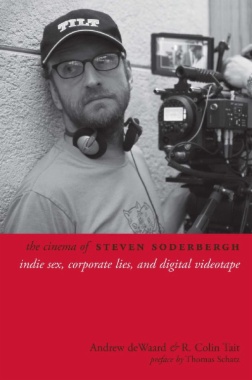The industry's only director-cinematographer-screenwriter-producer-actor-editor, Steven Soderbergh is contemporary Hollywood's most innovative and prolific filmmaker. A Palme d'or and Academy Award-winner, Soderbergh has directed nearly thirty films, including political provocations, digital experiments, esoteric documentaries, global blockbusters, and a series of atypical genre films. This volume considers its slippery subject from several perspectives, analyzing Soderbergh as an expressive auteur of art cinema and genre fare, as a politically-motivated guerrilla filmmaker, and as a Hollywood insider. Combining a detective's approach to investigating the truth with a criminal's alternative value system, Soderbergh's films tackle social justice in a corporate world, embodying dozens of cinematic trends and forms advanced in the past twenty-five years. His career demonstrates the richness of contemporary American cinema, and this study gives his complex oeuvre the in-depth analysis it deserves.
- Contents
- Acknowledgements
- Preface by Thomas Schatz
- Introduction
- PART ONE: AUTHOR, BRAND, GUERILLA
- 1. The Dialectical Signature: Soderbergh as Classical Auteur
- 2. Impresario of Indiewood: Soderbergh as Sellebrity Auteur
- 3. Corporate Revolutionary: Soderbergh as Guerilla Auteur
- PART TWO: HISTORY, MEMORY, TEXT
- 4. Searching Low and High: The Limey and the Schizophrenic Detective
- 5. Returning to the Scene of the Crime: Solaris and the Psychoanalytic Detective
- 6. The (Bl)end of History: The Good German and the Intertextual Detective
- PART THREE: CRIME, CAPITAL, GLOBALISATION
- 7. Genre and Capital: New Crime Wave in the 1990s
- 8. The Ethical Heist: Competing Modes of Capital in the Ocean's Trilogy
- 9. Trafficking Social Change: The Global Social Problem Film in the 2000s
- Conclusion
- Filmography
- Bibliography
- Index

